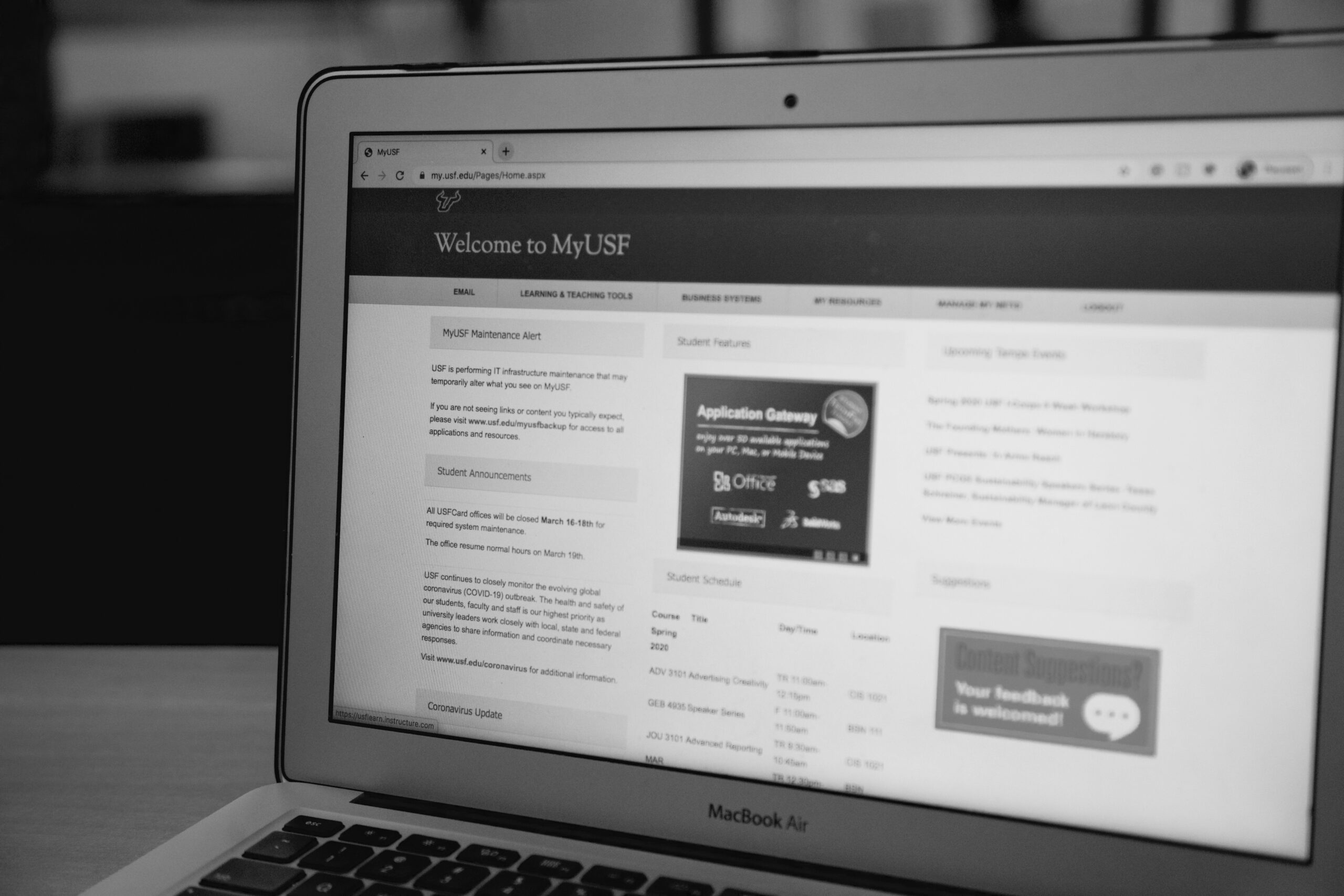Transition to online classes divides students

As more coronavirus cases are identified across Florida, students reacted with mixed opinions on USF’s decision to transition to remote coursework following spring break.
The transition was announced after the Florida Board of Governors mandated Wednesday afternoon that all state universities implement remote coursework “effective immediately.”
As a way to avoid the spread of the coronavirus across campus, some students believe the change is necessary and that the university is moving in the right direction.
“I think it’s a great idea, the university should’ve already had a backup procedure for events just like this, and having classes and exams be online is just the logical next step,” international studies student Christina Lopez said.
For other students, however, transitioning to an online platform is not their ideal learning setting and they believe it could impact their academic performances.
Sabrina Soltau, a senior majoring in international studies, said the decision could put her graduation at risk as she has extracurricular requirements to be fulfilled before May.
“The movement to have all classes online and cancel all travel has greatly disappointed me,” Soltau said. “I get that this is a precautionary measure, but considering the circumstances of the virus, it feels way too extreme. What most aggravates me is students have no say in this decision and are having conditions forced upon them that negatively impact their education.”
With more than 180 undergraduate majors, the concern about adapting certain courses to an online platform has risen among students.
Music education student Arlan Coster said that many on-campus departments, including music and performing arts, for example, could “suffer greatly” from the transition as the access to instruments and rehearsal spaces would be limited.
“Many of our classes require working with instruments and technology that we only have access to in the School of Music,” Coster said.
“There is a common theory in music that for every one day that someone doesn’t practice, it takes two days to get back to where they were. Multiply that by two weeks, and we’re looking at major setbacks for people who use school instruments and may be unable to transport them.”
The switch to an online platform could also impact students taking labs as well, according to microbiology major Oakley Maki.
Maki said that there could be better options to protect the students without “hindering their education.”
“Switching to an online format will impede the education of those who learn better in the traditional classroom setting,” Maki said. “As well as that, labs would be therefore ended and learning chances in the lab will end.
“I feel as if there could be options to better protect the students without hindering our education, such as providing masks to students to prevent the spread, limiting in-class exams and exam periods and switching them online. I believe the school should look to alternatives that would allow us to get our full education.”
For English and communications student Nicole Coppage, the transition could have a negative impact on her academic performance.
“I respect that we need to be proactive, however, until there is a case that is attached I don’t feel like going online is the best idea,” Coppage said. “I’m worried that my grades will slip because of the transition and changes in curriculum as well. It’s just increasing the paranoia and anxiety.”
However, microbiology student Logan Suits said that now is the time to take precautions before the situation gets “uncontrolled.”
“How bad this will be is, quite simply, hard to predict,” Suits said. “Right now, it’s not horrible, but it’s got the potential to become such. Whether we can control it, it will determine how significant the loss of life is.
“This isn’t the time to panic. It’s the time to be reasonable, take precautions and perhaps stay indoors. If it gets to be uncontrolled, perhaps then it will be the time for panic. But we’re not there yet.”
Despite the challenges of transitioning to an online platform, some students feel the decision was necessary to ensure everyone’s health and safety.
“We as students pay a lot of money to go to USF and I’m worried that reverting to online classes is going to hinder our learning and not allow us to unlock our greatest potential,” accounting major Nicholas Odenheimer said.
“I am glad USF is at least showing concern over the issue, as I certainly know it is a big problem, just one I think we are blowing out of proportion. I’d rather them show concern than show none at all.”
While some students feel the decision was warranted, Coster said that USF is in a lose-lose situation with any decision.
“If we didn’t transition at all and something major happened, then everyone would be up in arms, and now if nothing happens people will be upset that we wasted too much time, so there really isn’t any winning in this situation,” Coster said.







